Decent People Everywhere Will Support Genocide if You Press The Right Buttons
Manufacturing Consent: A Closer Look at Chomsky’s Model for How Public Opinion Is Engineered by Exploiting Basic Human Psychology
We’re primed to think propaganda was something we could only revisit in history books or dystopian fiction: Soviet posters, state-controlled TV, Orwellian stuff. But the effective propaganda today is subtle. It frames. It uses familiar & domestic language, emotional triggers, and specific aesthetics to shape what we think without us realising it. This is the core of what Noam Chomsky called ‘manufacturing consent’ and it’s deeply psychological.
He argued that in ‘liberal democracies’, the media doesn’t serve the public (ironically) it seeks to serve the powerful. But it doesn’t do this by censoring or lying outright (most of the time). It does so by shaping and flexing the boundaries of what is acceptable to think, feel, and believe.
“The smart way to keep people passive and obedient is to strictly limit the spectrum of acceptable opinion, but allow very lively debate within that spectrum.” — Noam Chomsky
The propaganda today hijacks basic human psychology. It doesn’t just manipulate facts which can be resisted intellectually. It first manipulates our affect (how we feel, how we think, how we react). And that’s why such large portions of the population have ended up supporting wars we didn’t understand, or staying silent about violence we’d otherwise be horrified by.
Let’s break this down psychologically. How does manufacturing consent actually work?
(1) Fear Conditioning: Flood the Brain, Freeze the Thought
The first and easiest lever to pull is fear.
Fear is incredibly fast and the most physiologically rooted of our emotions. Anxiety inducing stimuli bypass our reasoning centres and immediately activate the amygdala: our brain’s panic hub. An activated amygdala triggers a very real palpable physiological response (elevated heart rate, adrenaline, blood pressure etc).This is why governments and media start every war narrative with a existential threat: “WMDs,” “imminent nuclear threat,” “terror tunnels,” “Iran is weeks away from building a nuclear bomb.” It doesn’t matter if it’s true. It just needs to stimulate real existential fear.
“Propaganda is to a democracy what the bludgeon is to a totalitarian state.”
— Noam Chomsky
The existential threat is repeated across multiple media outlets and fear conditioning begins. If a population is scared enough, they won’t just accept military action, they’ll demand it. Think back to Iraq in 2002: “weapons of mass destruction” was repeated so often, it became a kind of spell. No evidence? Didn’t matter. The emotional groundwork had already been laid and 1 million Iraqi lives were terminated. We almost saw it to the same extent with Iran. Once people believe they’re in imminent existential danger, once they are emotionally fatigued, consent is just a byproduct.
(2) Emotional Baiting: Steering Empathy Where It’s Useful
People are generally deeply empathetic. That’s not a flaw, it’s a beautiful and often redeeming feature of humanity. But it also makes us incredibly vulnerable because our empathy as a population is a resource.
The media doesn’t feed us facts & information as it purports to. It crafts narratives, it tells us stories, it shows us faces, tears, grief. But it selects and curates those stories to steer and direct our empathy in a very specific direction.
When Israeli families cry, we’re shown up-close footage of their faces, their damaged homes, their grief. The values we hold dear as a society are closely integrated into the imagery we are presented (family, love, sacrifice, community etc). When Palestinians die in Gaza, we do not see family and community, we only hear about “militants,” “collateral damage,” or “death tolls.” Not lives. Not stories. Not people. Just numbers.
This is emotional baiting. It’s the manipulation of natural empathy. And it’s crucial, because war requires the public to feel a lot for one group and almost nothing for the other.
“If you're not careful, the newspapers will have you hating the people who are being oppressed and loving the people who are doing the oppressing.”
— Malcolm X, quoted by Chomsky in various interviews
(3) Moral Disengagement: Softening Violence With Language
Psychologist Albert Bandura called it moral disengagement: the ability to participate in or support real and significant violence while still seeing yourself as a good person.
Military operations aren’t described as ‘bombing residential neighbourhoods’ or ‘killing children’. They’re ‘precision strikes,’ ‘surgical operations,’ or ‘targeted eliminations.’ Entire apartment blocks are turned to rubble, but the headline reads: ‘Key infrastructure neutralised.’
The language used disconnects the action from the consequence. These euphemisms make the violence sound clean, necessary, even surgical. It makes the perpetrators sound responsible, and the victims sound like unfortunate background noise. The language allows us to support it, or at the very least look away, without feeling like monsters.
“If the Nuremberg laws were applied, then every post-war American president would have been hanged.”
— Noam Chomsky
In Gaza, this is everywhere. A school is obliterated? ‘Terrorists were operating nearby.’ A hospital was levelled? ‘A Hamas command centre was underneath it.’ The goal isn’t just to justify the action, it’s to prevent you from seeing it as real violence at all.
(4) Repetition and the Illusory Truth Effect: Say It Enough
There’s a well-documented and robustly tested phenomenon in psychology called the illusory truth effect. Put simply: the more often you hear something, the more likely you are to believe it’s true.
The media knows this. That’s why they repeat key phrases over and over: ‘Israel has a right to defend itself,’ ‘weapons of mass destruction,’ ‘terror infrastructure, ‘human shields.’ These phrases are embedded implicitly into our unconscious. They become the default framework through which we interpret everything else.
“The media want to turn the population into passive consumers of ideology.”
— Noam Chomsky
It’s about embedding assumptions so deeply that you stop questioning them. Even if new information emerges say, that Iran isn’t developing a bomb or that a bombing in Gaza killed 200 civilians, the emotional script has already been written. Your brain has already decided who the villain is
(5) Ingroup vs. Outgroup Psychology: Us vs Them
One of the deepest cognitive biases we carry is ingroup-outgroup bias. It’s evolutionary: we trust people who are like us and fear those who are not. The media plays this reptilian thread like a piano.
Media leverages this by constantly reminding us who ‘we’ are and who ‘they’ are. “We” are democratic, civilized, rational. ‘They’ are irrational, ideological, uncivilised. ‘We’ don’t target civilians. ‘They’ use human shields. ‘We’ defend. ‘They’ provoke.
This constant binary is especially obvious in coverage of Gaza. Palestinians are rarely shown as fully human. No hobbies, no dreams, no dignity. Only militants or refugees. Just numbers. And once the outgroup is fully dehumanised, the public doesn’t have to wrestle with moral complexities. This isn’t politics, it’s psychology. The more distant and alien the outgroup feels, the easier it is to rationalise away their suffering.
“It's only terrorism when they do it.”
— Noam Chomsky
Manufacturing consent is a psychological system the powerful have used for decades. To sell you war. To dull your empathy. To keep you from asking the right questions at the right time. Recently, media outlets attempted to lay the emotional and linguistic groundwork for another possible war this time with Iran. At the same time, they’re actively minimising or reframing what many scholars, human rights and international law experts, and even Holocaust survivors have called a genocide in Gaza.
The machinery of consent is working exactly as designed.
See also:
Reference:
Al Jazeera, 2025. Why manufacturing consent for war with Iran failed this time. Al Jazeera, [online] 28 June. Available at: https://www.aljazeera.com/opinions/2025/6/28/why-manufacturing-consent-for-war-with-iran-failed-this-time[Accessed 10 Jul. 2025].
Bandura, A., 1999. Moral disengagement in the perpetration of inhumanities. Personality and Social Psychology Review, 3(3), pp.193–209. https://doi.org/10.1207/s15327957pspr0303_3
Chomsky, N., 2002. Media Control: The Spectacular Achievements of Propaganda. New York: Seven Stories Press.
Chomsky, N., 2003. Interview with John Pilger. The New Statesman, [online] 17 March. Available at: https://chomsky.info/200303__/ [Accessed 10 Jul. 2025].
Chomsky, N., 2011. The purpose of education and the media. RSA Animate, [video]
Chomsky, N. and Herman, E.S., 1988. Manufacturing Consent: The Political Economy of the Mass Media. New York: Pantheon Books.
Electronic Intifada, 2023. By dehumanizing Palestinians, media enabled genocide in Gaza. The Electronic Intifada, [online] 15 Dec. Available at: https://electronicintifada.net/content/dehumanizing-palestinians-media-enabled-genocide-gaza/50317 [Accessed 10 Jul. 2025].
Hasher, L., Goldstein, D. and Toppino, T., 1977. Frequency and the conference of referential validity. Journal of Verbal Learning and Verbal Behavior, 16(1), pp.107–112.
Kahneman, D., 2011. Thinking, Fast and Slow. New York: Farrar, Straus and Giroux.
Mondoweiss, 2023. NYT slights Palestinian civilian deaths and Netanyahu’s political motivation for attacks. Mondoweiss, [online] 11 May. Available at: https://mondoweiss.net/2023/05/nyt-slights-palestinian-civilian-deaths-and-netanyahus-political-motivation-for-attacks [Accessed 10 Jul. 2025].
Pratkanis, A. and Aronson, E., 2001. Age of Propaganda: The Everyday Use and Abuse of Persuasion. Revised ed. New York: Henry Holt and Company.
Reuters, 2025. “Ghost camp”: Israeli operations in West Bank push wave of Palestinians from their homes. Reuters, [online] 9 Jul. Available at: https://www.reuters.com/world/middle-east/ghost-camp-israeli-operations-west-bank-push-wave-palestinians-their-homes-2025-07-09 [Accessed 10 Jul. 2025].
The Link, 2024. Your definitive Palestine media toolkit. The Link Newspaper, [online]. Available at: https://thelinknewspaper.ca/article/your-definitive-palestine-media-toolkit [Accessed 10 Jul. 2025].





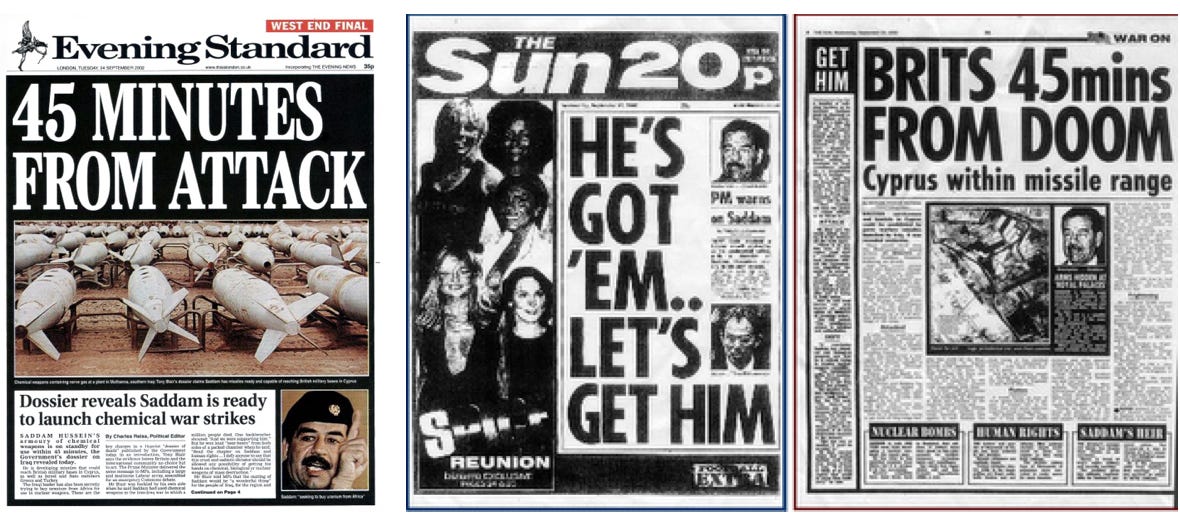
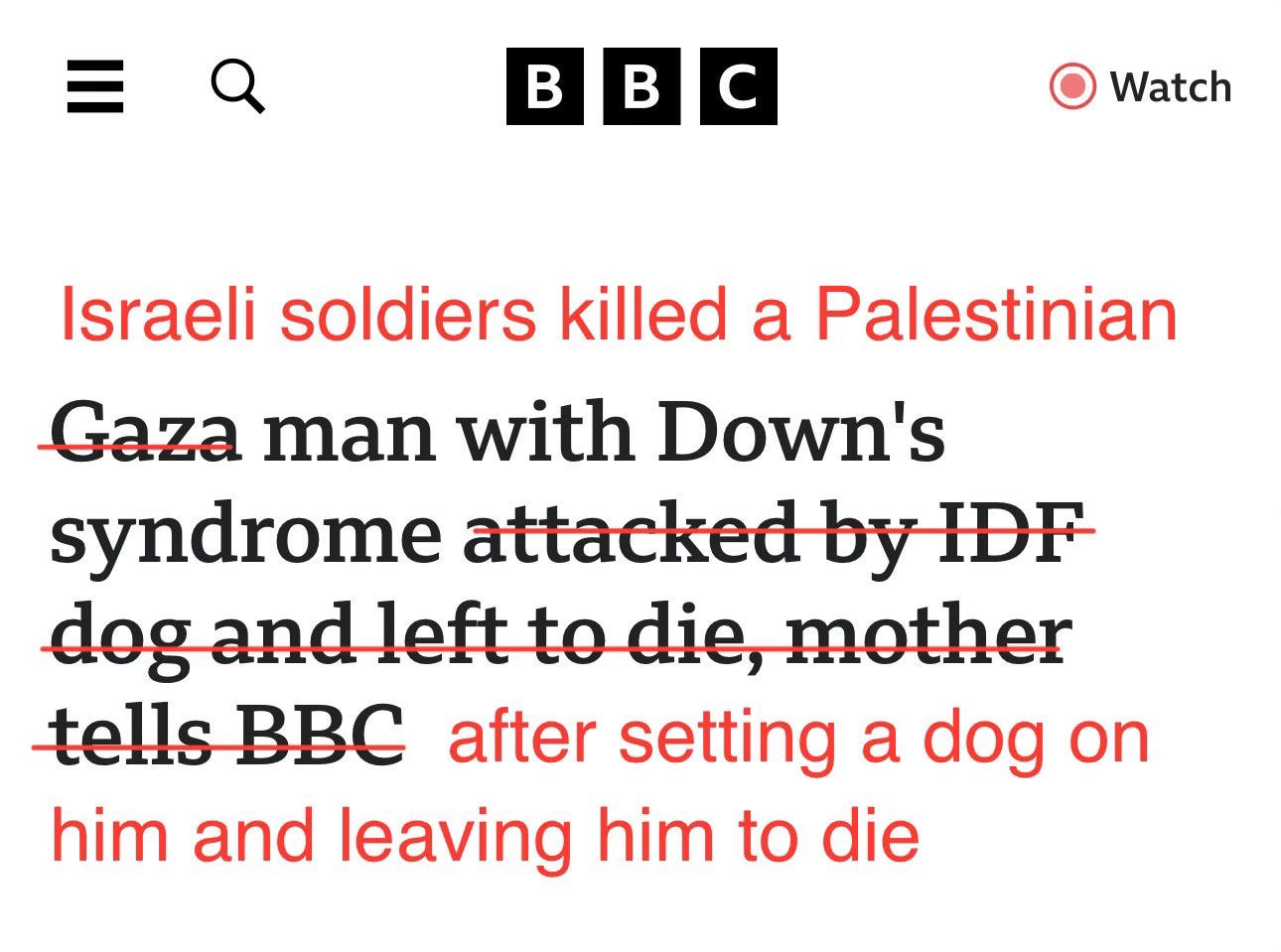
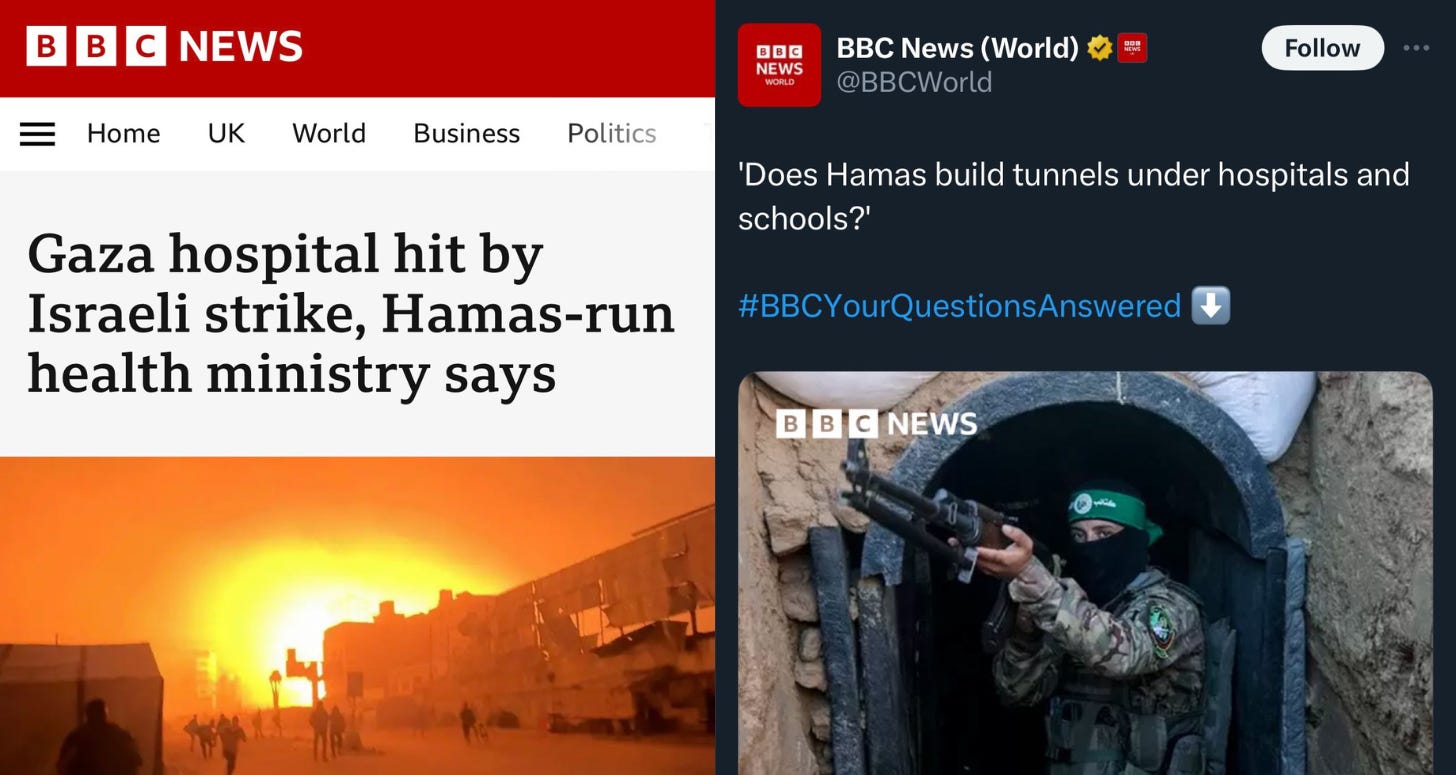
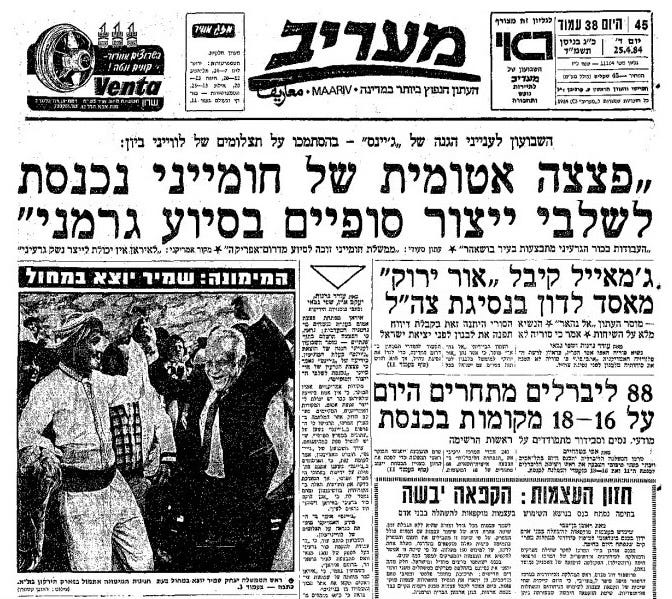



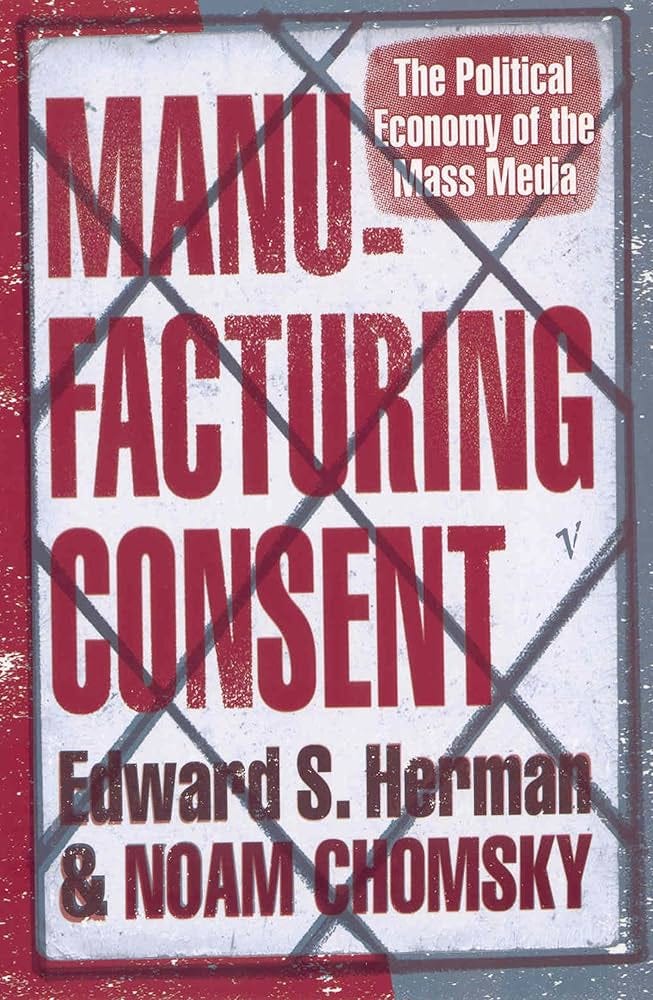
Immaculately written! I haven’t read Noam Chomsky and now I can’t wait to dive into his writings and learn more. Your essay was very eye-opening and illustrative.
Hello, keep writing, keep being strong.